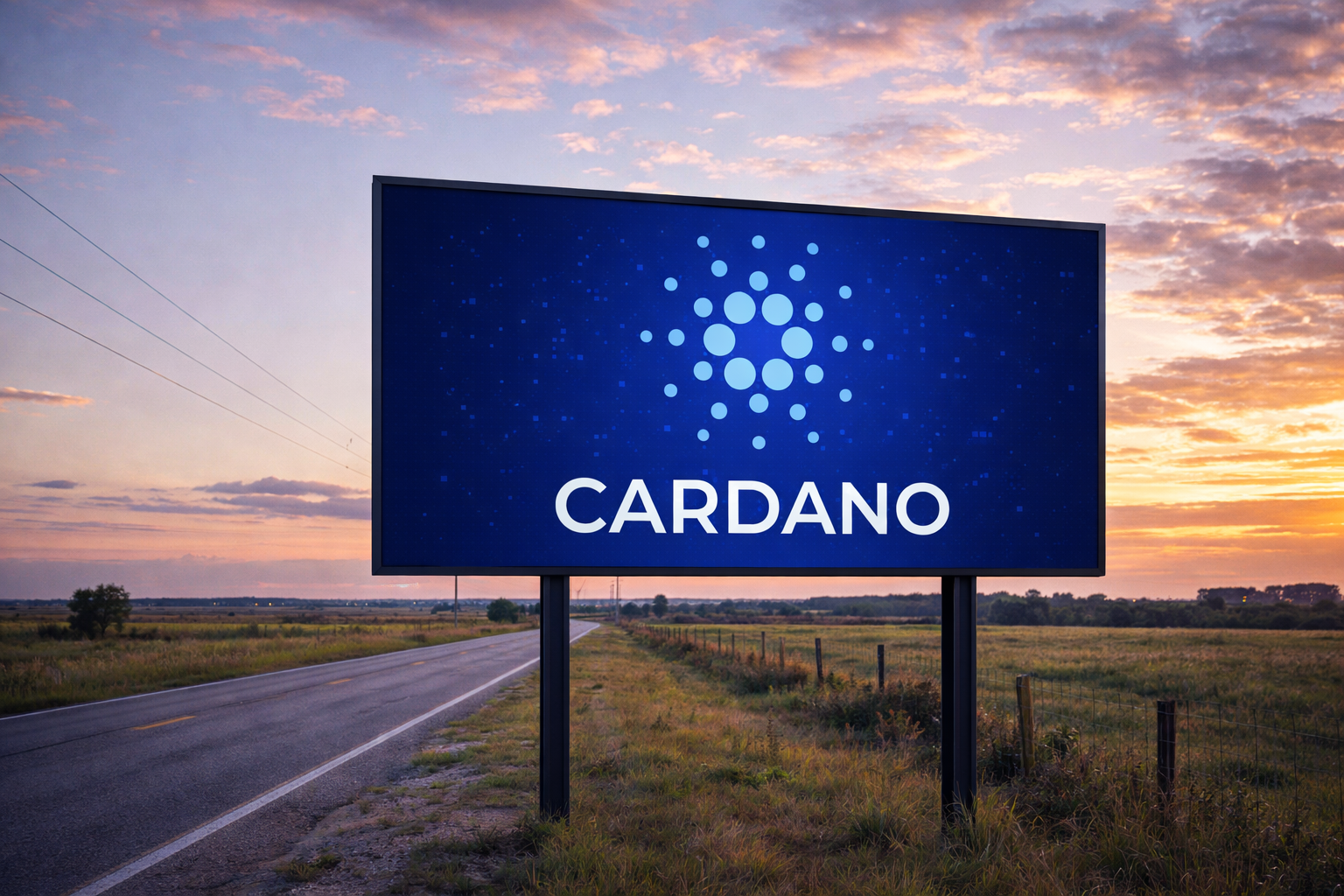Cardano Proposes Tech-Neutral Guidelines for Third-Party Risk
Cardano has disclosed in a recent report that the BIS’ principles and standards for managing third-party risks restrict the use of decentralized infrastructures like blockchain. Cardano also highlights that...

- Cardano has disclosed in a recent report that the BIS’ principles and standards for managing third-party risks restrict the use of decentralized infrastructures like blockchain.
- Cardano also highlights that some of the ways to facilitate resilient frameworks include technological neutrality and alternative risk management approaches.
In a recent report, Cardano (ADA) has proposed detailed measures to manage operational risks around the principles of the Bank for International Settlements (BIS) to ensure operational resilience. According to the report, its principles are crucial since they serve as the basis for national regulation.
The BIS is an international standard-setter for financial regulation. As part of its role, it issues principles and standards for managing third-party risks. Financial institutions are known for regularly outsourcing certain activities to third-party service providers. In this case, BIS influences which third-party infrastructures and services financial institutions could effectively use for outsourcing.
In our latest article, we share suggestions for making @BIS_org’s third-party risk principles less focused on centralized models.
We advocate for tech-neutral regulations to empower decentralized models and unlock blockchain’s potential. 🌐
Read more:https://t.co/NYMx9AkW9G— Cardano Foundation (@Cardano_CF) November 26, 2024
Cardano’s Statement on Strengthening Operational Resilience Via Tec-Neutrality
According to Cardano, formulating such standard risks restricts the use of decentralized architectures like the blockchain. The report highlighted that decentralized and open-access digital infrastructures like the public, permissionless blockchain, including Cardano, offset the risks existing in today’s financial market.
An excerpt of the report reads:
Open and diverse financial markets should empower institutions to make architectural choices based on their unique needs, free from regulatory constraints that favor legacy (centralized) models. By allowing institutions to explore a range of approaches and technologies, regulators can foster competitive innovation and support the emergence of the most effective and resilient solutions for evolving operational and risk management needs.
Cardano also discloses that decentralized infrastructure comes with several unique advantages, such as:
- Avoidance of single-entity dependency
- Enhanced resilience
- Transparency and audibility
- Composability and open-source develop
- Lower barriers to entry and cost reduction
According to the report, the current third-party risks principles of BIS rely on what it terms as the identifiable counterparty. This limits financial institutions to centralized services. Meanwhile, decentralized infrastructures are designed to operate without any central controlling entity.
In this case, it remains difficult to apply traditional counterparty-based risk management standards. Even that, financial institutions can manage risks in decentralized systems via a combination of alternative approaches such as:
- Infrastructure design and code base evaluation
- Collective risk assurance
- Direct participation.
According to Cardano, a technical neutral risk management framework should be resorted to enable financial institutions to capitalize on decentralized infrastructures by supporting both operational resilience and innovation in the financial sector.
Recommendations
The BIS third-party risk principles, as stated by Cardano, favor a traditional or centralized services model that requires a single legal counterparty for outsourcing.
This approach limits financial institutions’ ability to leverage decentralized infrastructures, which offer significant advantages in resilience, security, and cost efficiency. A counterparty-centric model inherently restricts technological neutrality and stifles innovation, preventing decentralized solutions from fully contributing to the financial system.
To facilitate a more resilient framework, Cardano recommends:
- Technological neutrality by revising the principles to avoid bias towards centralized models.
- Alternative Risk Management Approaches by allowing decentralized infrastructures to adopt tailored risk mitigation methods.
- Direct participation for risk mitigation by encouraging institutions to engage in decentralized infrastructures by running nodes, participating in governance, and contributing to development.
Recommended for you:
This article is provided for informational purposes only and is not intended as investment advice. The content does not constitute a recommendation to buy, sell, or hold any securities or financial instruments. Readers should conduct their own research and consult with financial advisors before making investment decisions. The information presented may not be current and could become outdated.

John is a seasoned cryptocurrency and blockchain writer and researcher, boasting an extensive track record of years immersed in the ever-evolving digital frontier. With a profound interest in the dynamic landscape of emerging startups, tokens, and the intricate interplay of demand and supply within the crypto realm, John brings a wealth of knowledge to the table. His academic background is marked by a Bachelor's degree in Geography and Economics, a unique blend that has equipped him with a multifaceted perspective. This diverse educational foundation allows John to dissect the geographical and economic factors influencing the cryptocurrency market, offering insights that go beyond the surface. John's dedication to the crypto and blockchain space is not merely professional but also personal, as he possesses a genuine passion for the technologies that underpin this revolutionary industry. With his astute research skills and commitment to staying at the forefront of industry trends, John is a trusted voice in the world of cryptocurrencies, helping readers navigate the complex and rapidly changing terrain of digital assets and blockchain innovation. John Kiguru is an accomplished editor with a strong affinity for all things blockchain and crypto. Leveraging his editorial expertise, he brings clarity and coherence to complex topics within the decentralized technology sphere. With a meticulous approach, John refines and enhances content, ensuring that each piece resonates with the audience. John earned his Bachelor's degree in Business, Management, Marketing, and Related Support Services from the University of Nairobi. His academic background enriches his ability to grasp and communicate intricate concepts within the blockchain and cryptocurrency space. Business Email: [email protected] Phone: +49 160 92211628
Delegate Your Voting Power to FEED DRep in Cardano Governance.
DRep ID: drep12ukt4ctzmtf6l5rj76cddgf3dvuy0lfz7uky08jfvgr9ugaapz4 | We are driven to register as a DRep by our deep dedication to the Cardano ecosystem and our aspiration to take an active role in its development, ensuring that its progress stays true to the principles of decentralization, security, and community empowerment.DELEGATE VOTING POWER!








